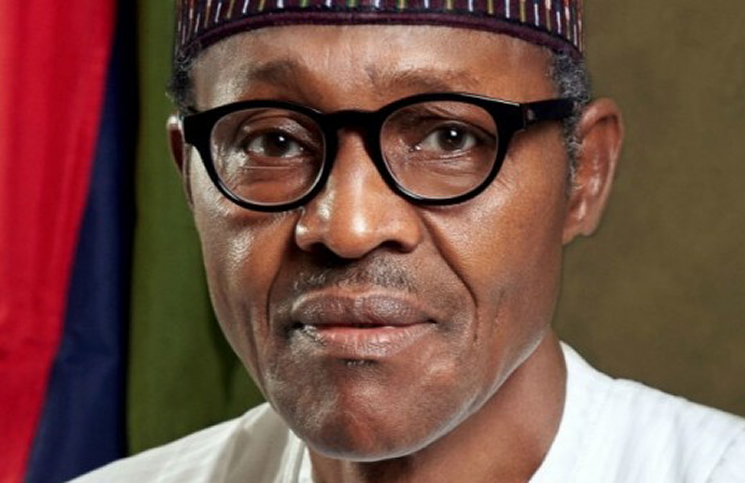By FEMI ADESINA
Those who were young (men-about-town) in the 80s will remember the 1979 hit track by McFadden & Whitehead, titled Ain’t no stopping us now. The lyrics goes thus:
Ain’t no stopping us now!
We’re on the move!
Ain’t no stopping us now!
We’ve got the groove!
And if you ponder and reflect on the political journey of President Muhammadu Buhari, right from 2003, when he threw his hat into the ring, till now, there have been spirited attempts to stop him. It got to a head in the build up to the 2019 elections, when a pernicious confederacy was put together, all to stop Nigeria’s inexorable march to greatness. It failed, resoundingly.
On Wednesday, May 29, 2019, President Buhari will take oath for second term in office. Millions of good Nigerians will be delirious with joy, but some other significant minority would be in ‘sifia’ (severe) pains. Why? Ain’t no stopping Muhammadu Buhari, he’s on the move! The man will get his groove, and evildoers will be in trouble.
The combat between light and darkness, evil and good, has been an eternal one. Some people love darkness more than light, because it is under the cover of darkness that they thrive, luxuriating in their evil acts: grand larceny, plunder, killings, and others. So, they will never love the Mai Gaskiya (the honest man), and would do everything to stop him, or pull him down.
The efforts to stop Buhari have been robust, pulsating. After a reputation of honesty and probity as military governor, petroleum minister, member of the Supreme Military Council, his colleagues found no one better to wear the diadem as military head of state than the ramrod straight man from Daura. And he began to reset the foundations of Nigeria, knocking sense into the heads of the corrupt and those prone to indiscipline. It was no longer business as usual.
But the dream run lasted only 20 months, before they truncated it. The landlords of Nigeria struck, and stopped Buhari. Up in smoke went probity and accountability. Discipline flew out through the window. And we went back to a place worse than square one.
The man came back as a reformed democrat. He sought to be president in 2003, 2007, and 2011. But those in mortal fear of righteousness in high places banded together, and stopped him. The Peoples Democratic Party (PDP) had perfected the art of elections manipulation, and they used it to the hilt.
However, in 2015, there ain’t no more stopping Buhari. A massive coalition for change was built around him, and good Nigerians stood up for the champion. Did he live happily ever after? Not on your lives! The adversaries went after him. Ran, pursued, and attempted to overtake. All sorts of things, physical and spiritual, were thrown at him, just to get rid of the man who would not steal, and not allow people to steal.
A debilitating illness came. And for most of 2017, the President was receiving medical attention, both at home and abroad. Instead of goodwill and prayers, they were rejoicing. We’ve finally stopped him, they gloated. But did they? Could they? Not if God was still alive.
Ain’t no stopping Buhari, as in August 2017, he got back his groove. His health rebounded, and he resumed work fully.
But would Pharaoh desist from pursuing Israel? No. He was destined to perish in a watery grave, so he pursued Israel into the sea. They formed what they called a coalition, vowing that they would stop Buhari from winning the 2019 elections. This was after letters had flown around from the master letter writer, virtually commanding the President to dismount from the horse. That letter writer thinks he’s the landlord of Nigeria, as anybody he moved against never survived. He felt he could enthrone and dethrone leaders at will. But the Yoruba people say it’s the day that the witch kills twins that she stops eating meat. The letter writer bit more than he could chew, and it stuck in his throat. He formed a political coalition, it collapsed right in his face. He first adopted a political party to use in his bid to unseat the incumbent, then in act of utter confusion, he abandoned that new party, and went for candidate of the PDP.
The same man he had spent the past 10 years destroying, writing volumes and volumes of verbiage against, he now attempted to sell to Nigerians. Were we fools?
See the grand conspiracy by those who called themselves ‘Atikulators.’ They included former presidents, some retired military top brass, disgruntled senior civil servants, business people, preachers, and the elite, generally. The sluice gates of free funds had been slammed shut, and they were unhappy. As dolorous as King Lear at his worst.
The letter writer mobilized the international community, feeding them with misinformation and disinformation. Fulanization. Islamization, and other creepy concoctions. He was already addressing the PDP candidate as “my incoming President.” Oh, how so very easy to build castles in the air!
Marabouts, witches, wizards, and false prophets masquerading as pastors, bishops, and archbishops also joined the fray. They began to spew falsehood, which they attributed to God. He that sits in Heaven just laughed at them, and held them in utter derision.
All those who were on the wrong side of the law joined the conspiracy. Ex-this, ex-that, who had abused their offices, and were being made to answer questions, crept under the umbrella. They knew if their man won, their cases would die natural deaths. So, for them, it was a matter of life and death.
They came with spurious political permutations and calculations. Votes in North-west and North-east would be shared. They would sweep North-central, where they had spent the last two years trying to demonize and de-market Buhari and his political party. South-west would also be shared, and then, they would win South-east and South-south wholesale. It seemed foolproof on paper, particularly when you also throw in massive vote buying, hacking of all the hackables, and a complicit judiciary as Plan B. They were already planning how to sell Nigeria, and tell the poor to go to hell.
But they didn’t reckon with the staying power of the poor and the downtrodden. They are people who know where their bread would be buttered, and where their future happiness lay. In their millions, they trooped out to vote for the honest man. They chose light, instead of darkness. At the end of it all, about four million votes separated the men from the boys.
The man left holding the short end of the stick went to court, claiming some servers from George Orwell’s sugar candy mountain, gave him victory. It’s within his democratic rights. Ain’t no stopping Buhari now, he’s on the move!
In recent weeks, banditry, killings, murder and mayhem have suffused the length and breadth of the country. Everything appears orchestrated, choreographed, to achieve certain ends. The law enforcement agencies are pointing fingers in certain directions. But Nigerians want them to do more. Pull in the evildoers, and let them face the law. That is what President Buhari tells them at each security council meeting, too. And we will get there. Soon and very soon, because we’ve got the groove. When the ram runs, its testicles dangle furiously from side to side. But no matter what, the testicles can never fall off. Nigeria will remain united, despite all machinations of the evil ones.
In that song by McFadden & Whitehead, you have these lines:
There’s been so many things that’s held us down,
But now it looks like things are finally comin’ round.
Yes. Things are coming round for Nigeria. We will get to where we are headed. Our fair havens, land flowing with milk and honey. The crooked and corrupt won’t ever stop us, nor would they rule us again, and the wealth of Nigeria will be used for the good of Nigerians. Ain’t no stopping us now, we’re on the move!
.Adesina is Special Adviser to President Buhari on Media and Publicity

 News6 years ago
News6 years ago
 Featured6 years ago
Featured6 years ago
 Boss Picks6 years ago
Boss Picks6 years ago
 Headline6 years ago
Headline6 years ago
 Headline6 years ago
Headline6 years ago
 Headline5 years ago
Headline5 years ago
 Headline6 years ago
Headline6 years ago
 Headline6 years ago
Headline6 years ago
























